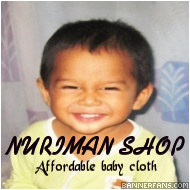
A true fever is particularly worrying in the first few months of a baby’s life. That’s because the infant's immune system is immature and not as effective in fighting off infections as it will be after three or four months of living outside the womb.
So it’s important to learn how to correctly take your baby’s temperature and understand what signifies a true fever.
What is considered a fever for my baby?
Doctors usually say a baby has a fever if the temperature rises to 38C (100.4F), or above. Learn what your baby’s normal temperature is by taking it a few times when he or she is well.
What causes a fever in babies?
There can be many causes for a baby’s fever. Dehydration is one. Or the infant might be over-bundled with clothes in a relatively warm environment - the rule of thumb is to dress your baby in just one more layer of clothing than you are comfortable in.
Most commonly, fever is caused by an infection. The body’s immune system senses the “foreign invader” - such as bacteria or a virus - and sends a chemical message to the brain’s temperature centre instructing it to crank up the heat inside the body. This has many advantages:
Some bacteria and viruses don’t like the higher temperature and are then more easily destroyed by the immune system.
The higher body temperature helps the body to ward off the infection.
In this way, fever is actually our friend: it lets us know that an infection may be brewing and it helps to fight off the infection.
When to worry about your baby’s fever?
Any fever in the first months could indicate a significant infection requiring immediate attention. All children under two months old with a true fever need a medical evaluation. Call your doctor to check up on fevers for at least the first four to six months of your baby’s life.
But fever is only part of the story. An even more important question is: does your newborn look unwell? If your baby appears to be sick in any way - irritability, listlessness, lethargy, poor feeding, respiratory distress, rash, vomiting, diarrhoea, etc - contact your doctor, even if the temperature is not high enough to be called a fever.
Source : www.webmd.com/parenting/










Tiada ulasan:
Catat Ulasan